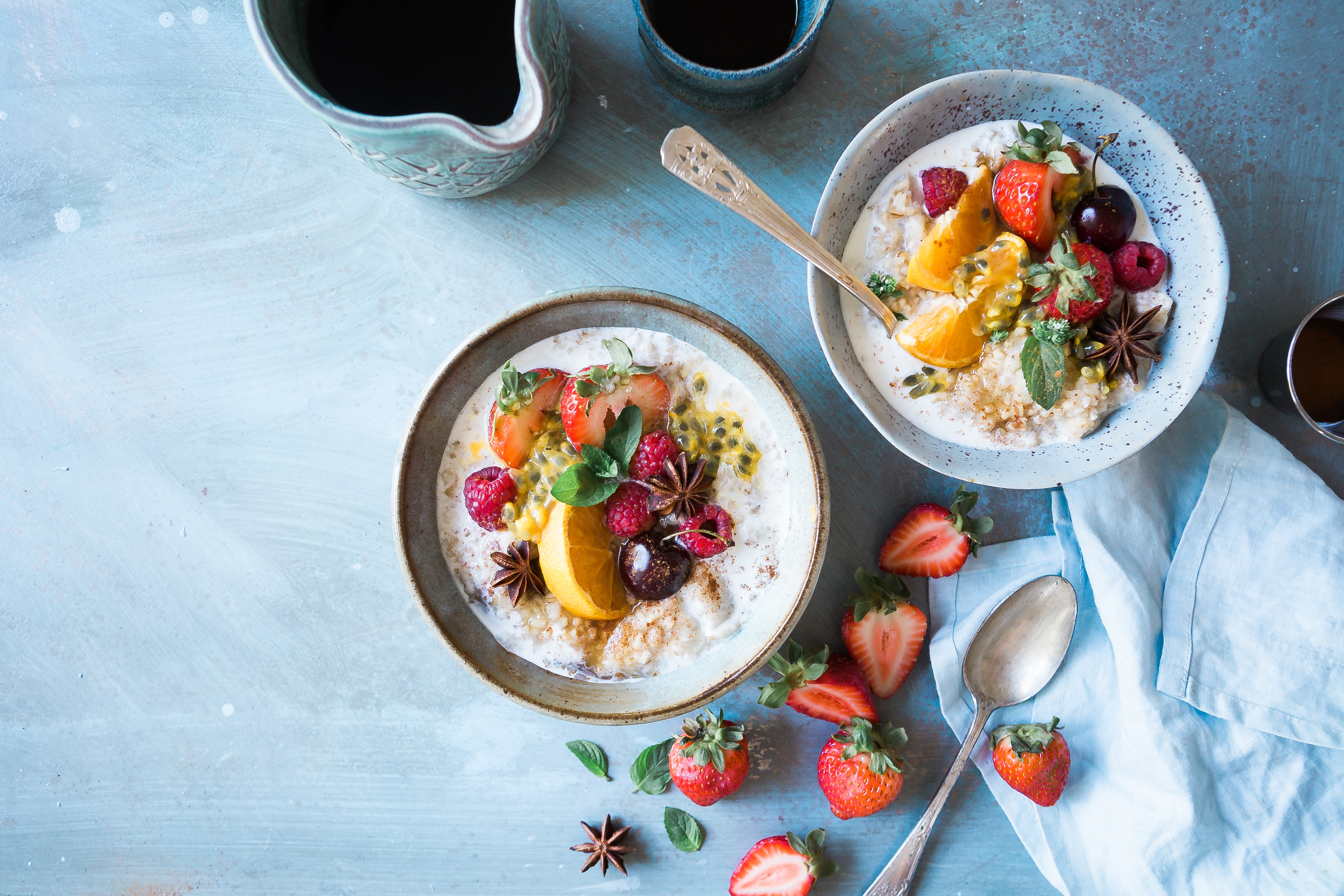A steaming bowl of porridge is easily our first pick on a frosty winter’s morning when we are seeking comfort and warmth. However, if you regularly feel hungry soon after eating and wonder why your trusty bowl of porridge hasn’t done the trick, it could be that you are forgetting a few key ingredients.
A balanced meal is a meal, which contains a source of carbohydrates, protein and healthy fats. If we break a typical bowl of oats down….oats themselves are a good source of carbohydrates and milk offers more carbs and a bit of fat and protein depending on which type of milk you choose. However, depending on quantity used, milk alone is usually not enough protein to keep you satisfied until your next meal or snack. With that being said, there are my tips on how to turn porridge into a healthy balanced meal
Carbohydrates
Whole rolled oats: it’s really important to use whole rolled oats in preference to instant oats as instant oats are processed which means they are digested quite rapidly and don’t offer a sustained release of energy. Whole rolled oats haven’t been processed and therefore offer a more sustained release of energy. If you like the convenience of instant oats, my tip is soaking the oats overnight in either water or milk of choice and this will cut down the cooking time.
Steel-cut oats: made by chopping the whole oat groat into small pieces as opposed to rolling it flat like rolled oats. This means steel-cut oats will take longer to cook and will have a chewier texture compared to traditional oats. I also find steel-cut oats more filling than whole rolled oats so a smaller portion is usually fine.
Quinoa or brown rice flakes: both are a gluten-free option and still offer a similar texture to oats.
Buckwheat groats: buckwheat groats are a good alternatively to oats and are rich in protein, zinc and fibre. Buckwheat only takes around 10-15 minutes to cook so still offers a quick breakfast option.
Protein
Milk: cow’s milk will have the highest content of protein followed by protein-fortified soymilk. Most almond and coconut milks won’t offer much protein so adding in another source of protein is important.
Greek yoghurt: can be spooned on top of porridge and offers a good source of protein in addition to calcium.
Hemp and chia seeds: a great option for those who are vegan or consume a dairy-free diet.
Pumpkin seeds: source of plant-based protein and also zinc.
Healthy Fats
Hemp and chia: in addition to protein, a great source of essential fats.
Nut butter: made from ground up nuts – a yummy topping for porridge rich in healthy fats. Tahini can also be used which is made from ground up sesame seeds.
Coconut flakes: a crunchy addition also rich in fats!
Fruit
In addition to porridge containing carbs, protein and fats, boosting the fibre and nutritional content can be easily done using seasonal fruit including:
- Apple and pears – lovely grated and added in with the oats when cooking
- Berries – great source of vitamin C and antioxidants beneficial to immunity
- Fresh dates – source of potassium and magnesium beneficial for post-workout
- Banana – can be mashed and added in during cooking or sliced and added on top
- Kiwi – good source of vitamin C and additional fibre
- Fruit compote – a great way to use up leftover fruit including berries and rhubarb
Sweeteners
If you have a sweet tooth and fruit just doesn’t cut it, a small drizzle of pure maple syrup or good quality honey are the best options as they offer some additional vitamins and minerals.
